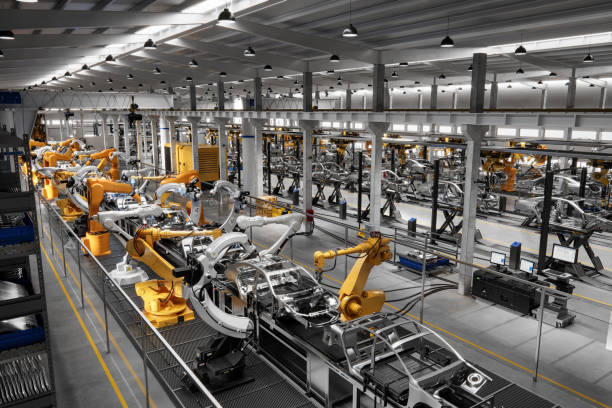North African countries have the potential to contribute to global manufacturing, several factors need to be considered when assessing their suitability as the “factory of the world.” Here are some points to consider:
-
Geographical Location: North African countries have advantageous geographic locations, providing proximity to major markets in Europe, the Middle East, and Africa. This proximity can help reduce transportation costs and lead times, making them attractive for manufacturing and exporting goods.
- Workforce: North Africa possesses a sizable and relatively low-cost labor force. However, the skill levels and productivity vary across the region. Some countries, such as Tunisia and Morocco, have made investments in education and vocational training, resulting in a skilled labor pool suitable for certain industries.
- Political Stability: Political stability is crucial for attracting foreign investment and establishing long-term manufacturing operations. While some North African countries have experienced political transitions and occasional unrest, efforts have been made to maintain stability and create a favorable investment climate.
- Infrastructure: The availability of reliable infrastructure, including transportation networks, ports, and energy supply, is vital for manufacturing activities. While there have been infrastructure developments in North Africa, some areas may still require further improvements to meet the needs of large-scale manufacturing operations.
- Economic Policies: The implementation of favorable economic policies, such as investment incentives, tax reforms, and streamlined regulations, can encourage foreign investment and stimulate manufacturing growth. Governments in North Africa have undertaken various measures to attract investment, but further improvements may be necessary to compete globally.
- Industrial Zones and Free Trade Agreements: North African countries have established industrial zones and free trade agreements (FTAs) with multiple regions, creating opportunities for manufacturers. These zones offer infrastructure, incentives, and simplified procedures to attract investors. FTAs, such as the Agadir Agreement and the African Continental Free Trade Area (AfCFTA), enhance market access and trade opportunities.
- Sector Focus: North African countries have shown strengths in certain sectors, such as textiles, clothing, automotive, electronics, and agro-industry. Leveraging these existing capabilities and fostering industry-specific clusters can enhance competitiveness and attract more manufacturing activities.
While North African countries have made progress in developing their manufacturing sectors, there are still challenges to overcome, including infrastructure gaps, bureaucratic hurdles, and the need for ongoing reforms. Additionally, competition from other global manufacturing hubs and the need to address specific industry requirements may pose challenges.
It is important to note that each North African country has its unique characteristics, advantages, and challenges. Assessing the suitability of a specific country for manufacturing should consider factors such as labor costs, skill levels, industry specialization, infrastructure, and the business environment.



